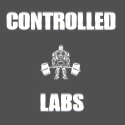|

04-08-2006, 07:33 AM
|
 |
Rank: Member
|
|
Join Date: Mar 2006
Posts: 54
|
|

Arginine and IGF-1 and Growth Hormone:
Quote:
http://www.blackwell-synergy.com/lin....11605.x/full/
"Arginine is a basic amino acid that plays several pivotal roles in cellular physiology. Like any amino acid, it is involved with protein synthesis, but it is also intimately involved with cell signaling through the production of nitric oxide and cell proliferation through its metabolism to ornithine and the other polyamines. Because of these multiple functions, arginine is an essential substrate for wound healing processes. Numerous studies have shown that arginine supplementation can lead to normalization or improvement of healing. This article reviews the basic biochemistry and cell signaling within which arginine performs its functions. In particular, the requirement for this amino acid in tissue repair is highlighted."
"Arginine is a dibasic amino acid. It is a constituent of several proteins in the body, and its metabolism is intimately tied to several metabolic pathways involved in the synthesis of urea, NO, polyamines, agmatine, and creatine phosphate. Arginine can be provided via nutritional intake or via new synthesis. Citrulline, generated from glutamine in the small intestine, is the major precursor for arginine. 4 About 50% of the ingested arginine is released into the portal circulation. The other part is directly utilized in the small bowel. The physiological uptake of arginine and citrulline by the liver is low because the liver does not express large amounts of the cationic transporter for the basic amino acid arginine (system y+). Therefore, most of the portal venous arginine and citrulline enters the systemic circulation and serves as substrate for extrahepatic tissues."
"...Although iNOS gene deletion delays, and arginine and NO administration improve healing, the exact mechanisms of action of NO on wound healing parameters are still unknown."
"One of the well-known biological effects of arginine is its very potent secretagogue activity on the pituitary 4547 and pancreatic glands. 48,49 The beneficial effects of supplemental arginine on wound healing are similar to the effects noted when growth hormone is administered to wounded animals or burned children."
"The response of healthy elderly human volunteers given 2 weeks of dietary supplementation with 30 g of arginine aspartate is enhanced wound collagen accumulation together with a significant elevation in circulating IGF-1. 39 This suggests that arginine does stimulate pituitary activity in the doses used and that this may be one of the mechanisms of action underlying its beneficial effect on wound healing."
|

|